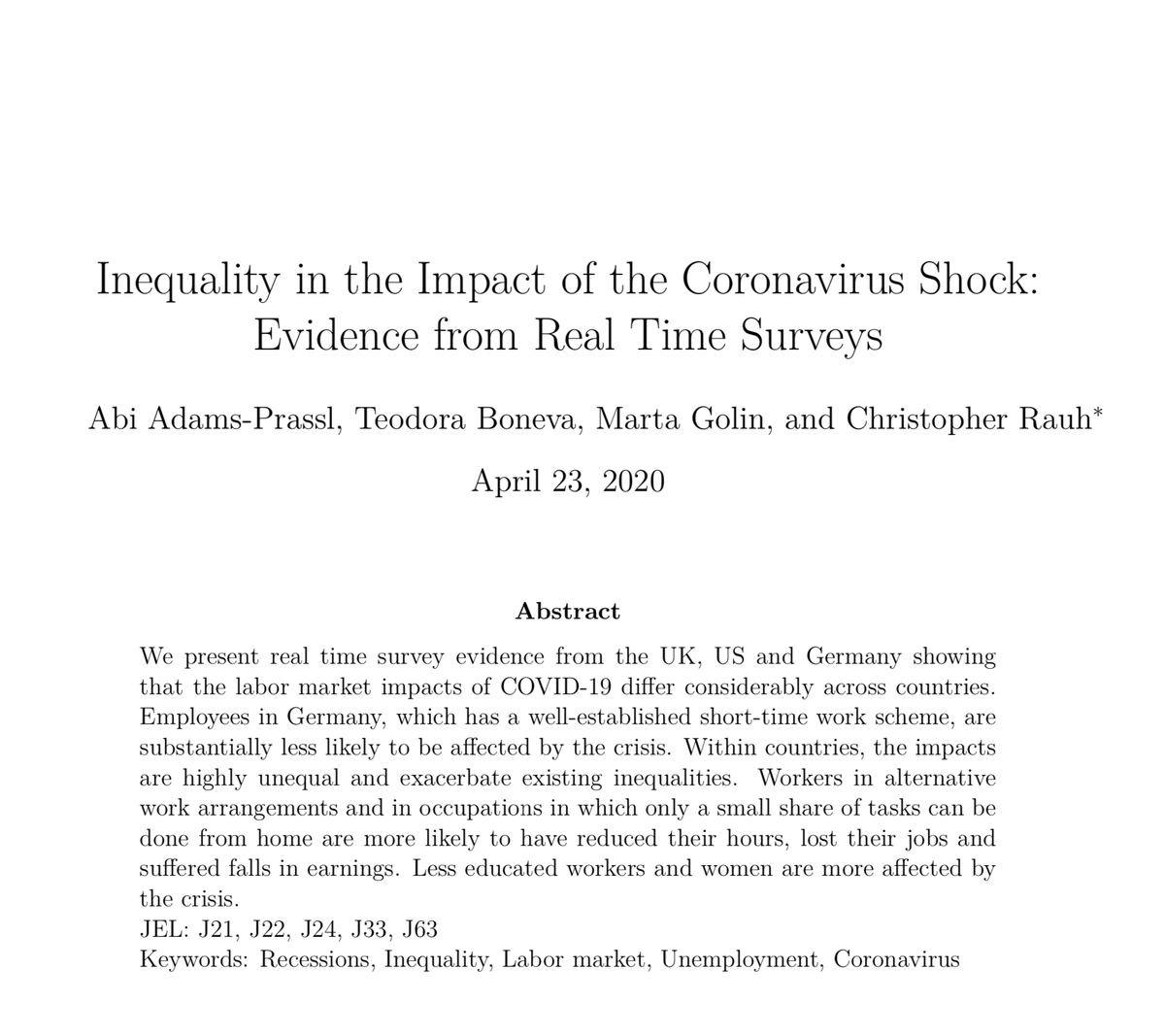
I was asked to talk on "Working in a Male Dominated Profession" at the #EEAESEM22 women in economics retreat yesterday
In case they are useful for others, a thread on my advice 🧵👇
In case they are useful for others, a thread on my advice 🧵👇
https://twitter.com/EEANews/status/1561464254615674883
1/ First a disclaimer: I have a fundamental identification problem - I've not known anything different!!
So I'll likely be mixing up some general career advice & my own prefs - make sure you reflect on your own objective function
So I'll likely be mixing up some general career advice & my own prefs - make sure you reflect on your own objective function
2/ There's work on average gender gaps in many dimensions: constraints, beliefs, negotiation styles = higher change women in the profession have diff views & needs from their male peers & seniors
Remember though that there's lots of overlap in distributions & many male allies
Remember though that there's lots of overlap in distributions & many male allies

3/ Starting out: do your homework to get your ask right when negotiating & understand bounds on whats possible. There can be a lot of variation even within a dept.
There're demands to be the woman on a committee. Be especially careful with roles that are reactive & invisible
There're demands to be the woman on a committee. Be especially careful with roles that are reactive & invisible

3b/ I've been lucky to have great senior (male) allies. Again do your homework to know who they are and ask them for advice on bargaining & what tasks to say yes to
4a/ Many times I've felt a research interaction went wrong because I mixed up asking for early feeback on an idea with "selling" a result
It's hard to get decent feedback on very early ideas from everyone. Work out who you feel comfortable talking to & is willing to give you the
It's hard to get decent feedback on very early ideas from everyone. Work out who you feel comfortable talking to & is willing to give you the

4n/ benefit of the doubt
You need to work out your way of being assertive. This is not being aggressive!
Tell others publicly when you think they've done a good job/asked a good question (especially juniors & students) --- we need to shift the equilibrium
You need to work out your way of being assertive. This is not being aggressive!
Tell others publicly when you think they've done a good job/asked a good question (especially juniors & students) --- we need to shift the equilibrium
5/ Teaching is where I've faced the most issues with a majority male group
Don't internalise this! I find visualising any sexist comment, squashing it into a ball & throwing it over my shoulder helpful ;)
Ask advice from other faculty if it keeps happening & get students
Don't internalise this! I find visualising any sexist comment, squashing it into a ball & throwing it over my shoulder helpful ;)
Ask advice from other faculty if it keeps happening & get students

5b/ involved in any inclusivity training
Recognise that you will never be able to do all tasks perfectly & it's not your job to "solve" every problem --- signposting is often fine
Recognise that you will never be able to do all tasks perfectly & it's not your job to "solve" every problem --- signposting is often fine
6/ We all have diff objectives in life & diff production functions. Do things on purpose & don't consistently downgrade your wellbeing
If close female friends important to you, you might need to invest in activities outside of work. This is okay!!
If close female friends important to you, you might need to invest in activities outside of work. This is okay!!

6b/ But importantly, I LOVE my job
I've been incredibly lucky to have supportive colleagues & would definitely choose to be an academic economist again if I was starting out again knowning what I know now
I've been incredibly lucky to have supportive colleagues & would definitely choose to be an academic economist again if I was starting out again knowning what I know now
7/ Huge thanks to #EEAESEM22 #Wine for hosting, Ghazala Azmat & Caterina Calsamiglia for organising, the amazing junior women & inspiring other mentors
@LibertadGonLu @CornoLucia @IsabelleMejean @laura_hospido Margarita Fort Paola Bustos that I learnt a lot from yesterday!
@LibertadGonLu @CornoLucia @IsabelleMejean @laura_hospido Margarita Fort Paola Bustos that I learnt a lot from yesterday!
• • •
Missing some Tweet in this thread? You can try to
force a refresh









